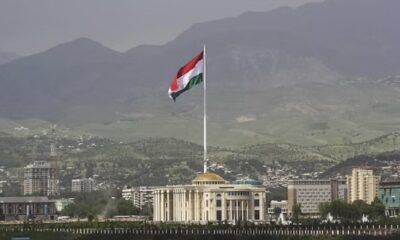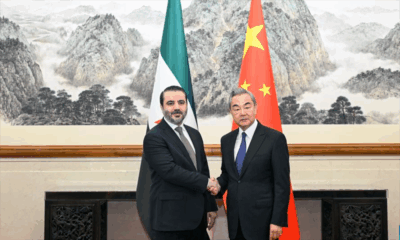Health
As world population hits 8 billion, China frets over too few babies
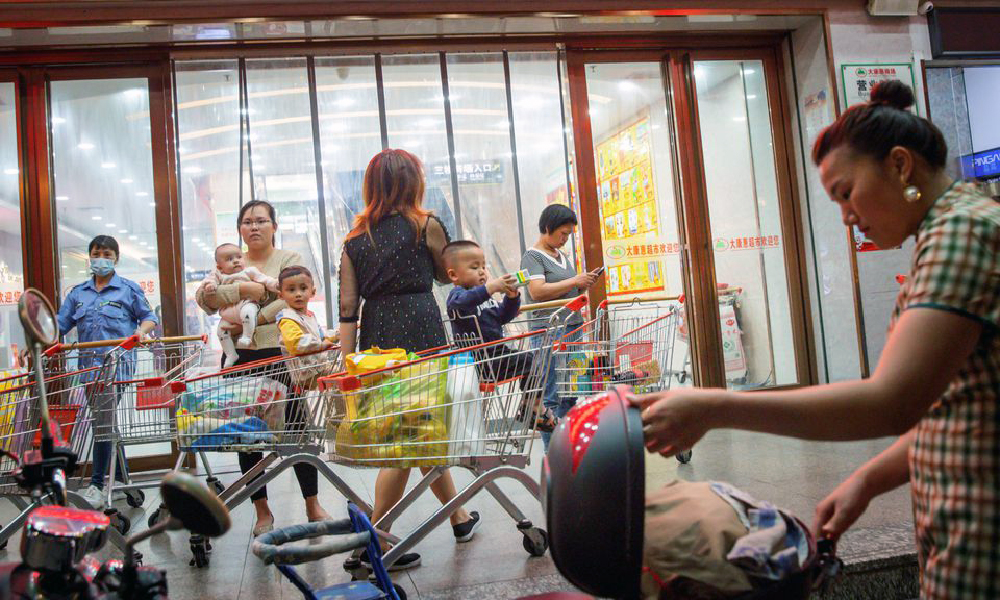
Chinese software developer Tang Huajun loves playing with his two-year-old in their apartment on the outskirts of Beijing but he said he is unlikely to have another child.
Such decisions by countless people like Tang will determine the course not only of China’s population but that of the world, which the United Nations says is projected to reach 8 billion on Tuesday, Reuters reported.
Tang, 39, said many of his married friends have only one child and, like him, they are not planning any more. Younger people aren’t even interested in getting married let alone having babies, he said.
The high cost of childcare is a major deterrent to having children in China, with many families in an increasingly mobile society unable to rely for help on grandparents who might live far away.
“Another reason is that many of us get married very late and it’s hard to get pregnant,” Tang said. “I think getting married late will definitely have an impact on births.”
China was for decades preoccupied with the prospect of runaway population growth and imposed a strict one-child policy from 1980 to 2015 to keep numbers in check.
But now the United Nations expects China’s population will start shrinking from next year, when India will likely become the world’s most populous country.
The anguish of the coronavirus pandemic and China’s strict measures to stamp it out may also have had a profound impact on the desire of many people to have children, demographers say.
New births in China are set to fall to record lows this year, demographers say, dropping below 10 million from last year’s 10.6 million – which was already 11.5% lower than in 2020.
Beijing last year began allowing couples to have up to three children and the government has said it is working towards achieving an “appropriate” birth rate.
Alarmed by the prospect of an aging society, China has been trying to encourage couples to have more children with tax breaks and cash handouts, as well as more generous maternity leave, medical insurance and housing subsidies.
But demographers say the measures are not enough. They cite high education costs, low wages and notoriously long working hours, along with frustration over COVID curbs and the overall state of the economy.
A key factor is job prospects for young people, said Stuart Gietel Basten, professor at Hong Kong’s University of Science and Technology.
“Why would you have more babies when the people you have cannot even get jobs?”
Health
Health ministry holds meeting with envoys of international organizations in Kabul
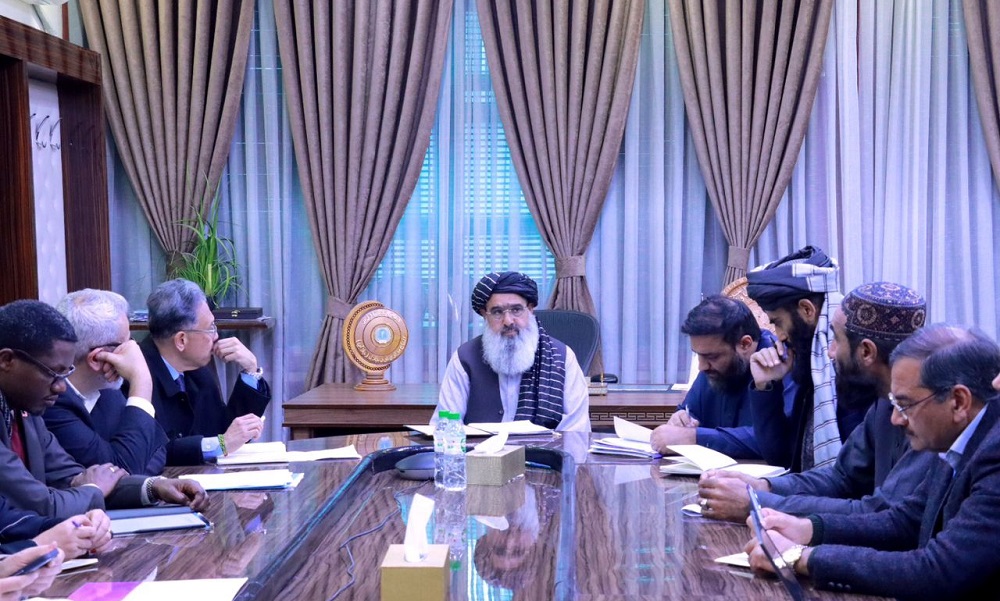
Noor Jalal Jalali, Minister of Public Health of Afghanistan, held a meeting in Kabul with representatives of the World Health Organization, UNICEF, the World Bank, the Asian Development Bank, the European Union, the UK Foreign, Commonwealth and Development Office (FCDO), and other international organizations.
According to the ministry’s statement, representatives of these international organizations discussed the delivery of health and development services, improving the management of aid and resources in the health sector, integrating health facilities and aligning them with the new policy, providing health services in accordance with the Ministry of Public Health’s policy, strengthening the immunization and vaccination sector, delivering services based on priorities, and ensuring sustained coordination.
During the meeting, Jalali stressed the need for transparency and attention to the ministry’s priorities in order to enhance the effectiveness and impact of health services. He added that the delivery of health services must be carried out in line with the ministry’s policy and through better management of existing international assistance.
Referring to vaccination campaigns, he stated that the recent measles and polio vaccination campaign had been implemented very successfully, and emphasized that necessary preparations should be made for upcoming campaigns.
He also provided information regarding the review of the BPHS and EPHS health packages and the establishment of a standardized system through technical committees.
In this meeting, Edwin Ceniza, the WHO Representative for Afghanistan, reaffirmed the organization’s continued cooperation with the Ministry of Public Health and expressed appreciation to the ministry’s leadership for their tireless efforts to improve the health system.
Representatives of these organizations pledged to maintain effective and sustained coordination and to provide their services within the country in accordance with the policies and principles of the Ministry of Public Health.
Health
IEA health delegation travels to Turkey
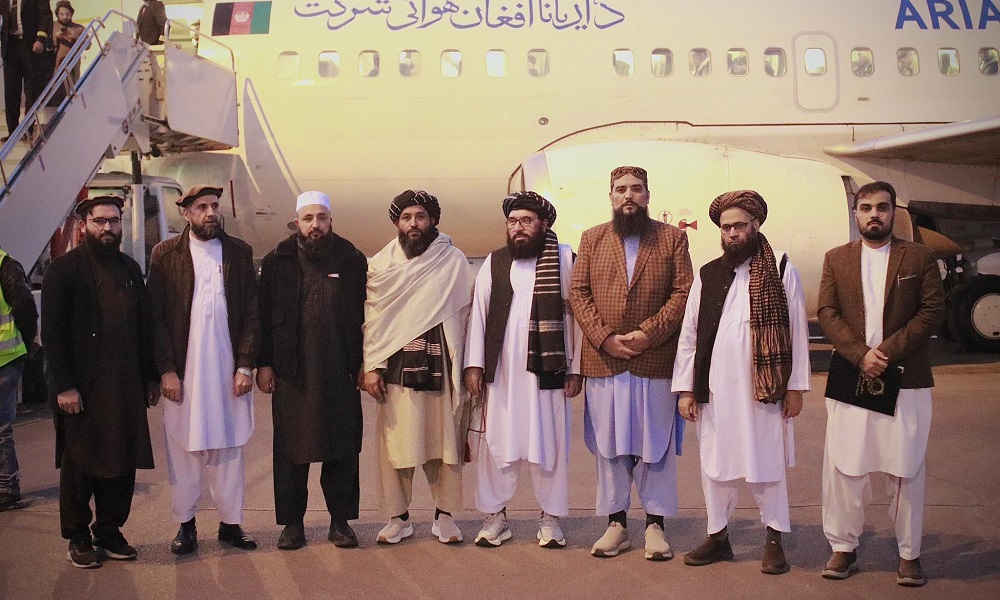
Abdul Wali Haqqani, Deputy Minister for Health Services at the Ministry of Public Health of the Islamic Emirate of Afghanistan (IEA), has departed for Turkey on an official visit accompanied by a high-ranking delegation.
According to a statement released by the Health Ministry on Wednesday, the trip aims to acquire new health-sector expertise, assess Turkish medical and scientific institutions, meet with Turkish health and government officials, and strengthen bilateral cooperation.
During the visit, the delegation is scheduled to meet representatives from both public and private health sectors to support improvements in Afghanistan’s healthcare system and enhance coordination between the two countries, the statement added.
Health
Polio vaccination drive launches across 17 Afghan provinces
Officials say routine vaccination remains the most effective tool for eliminating polio and have urged families to fully cooperate with health teams during the campaign.

The Ministry of Public Health has announced the launch of a major anti-polio vaccination campaign, set to begin on Monday across 17 provinces of Afghanistan.
According to Sharafat Zaman, spokesperson for the ministry, the nationwide initiative will target 7.4 million children under the age of five, delivering vaccines door-to-door to prevent the spread of the poliovirus and safeguard children’s health.
Officials say routine vaccination remains the most effective tool for eliminating polio and have urged families to fully cooperate with health teams during the campaign.
This effort forms part of the government’s ongoing strategy to protect Afghanistan’s next generation from preventable diseases and strengthen public health across the country.
This comes after the World Health Organization (WHO) recently again classified the global spread of poliovirus as a Public Health Emergency of International Concern (PHEIC), warning that the disease remains endemic in only two countries — Afghanistan and Pakistan.
The decision followed the 43rd meeting of the Polio Emergency Committee under the International Health Regulations (IHR), which convened on 1 October 2025.
According to the Committee, Afghanistan reported four new wild poliovirus type 1 (WPV1) cases so far this year, compared to 24 in Pakistan.
The Afghan cases were detected in the country’s southern and eastern regions, where transmission remains intense despite ongoing vaccination efforts.
-

 Latest News2 days ago
Latest News2 days agoMuttaqi: Afghanistan’s progress requires both religious and modern education
-

 Sport4 days ago
Sport4 days agoILT20: Desert Vipers edge Gulf Giants in historic super over thriller
-

 Regional4 days ago
Regional4 days agoSix Pakistani soldiers killed in TTP attack in Kurram District
-

 Business4 days ago
Business4 days agoTrade bodies warn almost 11,000 Afghan transit containers stuck at Karachi port
-

 World4 days ago
World4 days agoPowerful 7.6 earthquake hits northern Japan, tsunami warnings issued
-

 Latest News3 days ago
Latest News3 days agoTrump calls Afghanistan a ‘hellhole’ country as US expands immigration restrictions
-

 Sport5 days ago
Sport5 days agoSorkh Poshan Khafi defeats Sarsabz Yashlar 4-0 in Afghanistan Champions League
-

 Sport3 days ago
Sport3 days agoCommanding wins for Arman FC and Sarsabz Yashlar in Afghanistan Champions League




